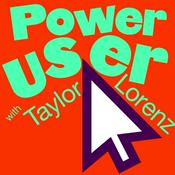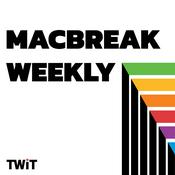723 episodes
- In this conversation, Stephan Livera and Keith from Branta discuss the intricacies of Bitcoin payments, focusing on the importance of address verification and security in the context of increasing digital threats. They explore how Branta's zero-knowledge verification process can enhance user experience and security, particularly in the face of potential scams and malware. The discussion also touches on the integration of Branta with Lightning and other Layer 2 solutions, as well as the future of Bitcoin user experience in an AI-driven world.
Takeaways:
🔸Bitcoin payments require careful address verification to avoid scams.
🔸Branta uses zero-knowledge proofs to enhance security.
🔸User experience in Bitcoin transactions needs improvement.
🔸Address replacement attacks are a significant risk.
🔸Branta aims to provide a seamless verification process.
🔸Integration with wallets and exchanges is crucial for adoption.
🔸AI may introduce new scamming vectors in cryptocurrency.
🔸The goal is to make Bitcoin as user-friendly as credit cards.
🔸Businesses adopting Branta can enhance customer trust.
🔸Future developments will focus on consumer use cases for Branta.
Timestamps:
(00:00) - Intro
(00:35) - What’s new with Branta?
(01:32) - Address verification risks
(04:59) - What is Branta's Zero-Knowledge verification process?
(08:36) - Where is the verification taking place?
(11:55) - Address verification in mobile and web interfaces
(15:50) - Branta's integration with Lightning and L2s
(18:17) - Costs of using Branta
(18:58) - Future of Bitcoin security and AI threats
(21:03) - Branta's role in consumer adoption
(25:25) - Closing thoughts
Links:
https://x.com/unfakekeith
https://x.com/BrantaOps
https://branta.pro/
Stephan Livera links:
Follow me on X: @stephanlivera
Subscribe to the podcast
Subscribe to Substack - In this conversation, Stephan Livera and Robert Warren discuss the evolving landscape of Bitcoin mining, focusing on the intersection of energy consumption and human flourishing. They explore the impact of AI on energy demand, the misconceptions surrounding the cost of production in Bitcoin mining, and innovative strategies for monetizing energy. The discussion highlights notable examples of companies and initiatives that are redefining the mining industry, emphasizing the importance of flexibility and community-driven innovation.
Takeaways:
🔸Energy consumption correlates with human flourishing.
🔸The narrative around Bitcoin mining is evolving positively.
🔸AI's demand for energy is reshaping the mining landscape.
🔸Cost of production metrics are often misleading in Bitcoin mining.
🔸Henry Ford's principles of continuous production apply to Bitcoin mining.
🔸Monetizing the megawatt involves diverse revenue streams.
🔸Gridless compute is revolutionizing energy use in Bitcoin mining.
🔸Smaller miners can thrive by leveraging unique opportunities.
🔸Flexible load strategies can stabilize energy markets.
🔸Innovation labs like Choya are crucial for industry advancement.
Timestamps:
(00:00) - Intro
(00:50) - Overview of National Energy & Mining Summit
(02:42) - Human flourishing and energy consumption
(06:11) - The energy narrative around Bitcoin
(10:00) - Bitcoin miners pivoting to AI
(14:04) - Hashrate growth
(16:59) - “Cost of Production” analyst metric criticism
(22:50) - Early years of Bitcoin mining
(24:54) - Henry Ford's crystal palace
(29:38) - Monetizing the Megawatt
(33:10) - Different revenue streams in Bitcoin mining
(36:20) - How is Gridless Compute innovating Bitcoin mining ops?
(40:15) - Robert’s Home Bitcoin mining setup
(42:38) - What is ‘Flexible Load Management’ in Bitcoin mining?
(46:41) - Upstream Data bridging Oil & Bitcoin mining
(50:49) - The Cholla Innovation Lab
(54:23) - Upcoming events at Bitcoin Park
Links:
https://x.com/robertwarren
https://x.com/bitcoinpark_
https://x.com/robertwarren/status/2019449339811131840
https://bitcoinpark.com/MONETIZING%20THE%20MEGAWATT%201_26.pdf
https://linktr.ee/bikesandbitcoin
Stephan Livera links:
Follow me on X: @stephanlivera
Subscribe to the podcast
Subscribe to Substack - In this conversation, Stephan Livera and James O'Beirne discuss the implications of quantum computing on Bitcoin, exploring skepticism towards the perceived threats, the current state of quantum research, and the potential responses from Bitcoin developers. They delve into proposed solutions, the role of institutions like NIST, and the challenges of Bitcoin protocol development. The discussion also touches on user experience, self-custody, and the future of Bitcoin adoption amidst evolving technological landscapes.
Takeaways:
🔸Quantum computing poses theoretical risks to Bitcoin, but practical threats are far off.
🔸Skepticism about quantum computing's immediate impact is prevalent among experts.
🔸Bitcoin developers have more pressing issues to address than quantum threats.
🔸Proposed solutions like BIP 360 could enhance Bitcoin's security regardless of quantum risks.
🔸NIST's push for post-quantum cryptography raises concerns about government influence.
🔸The academic and business interests in quantum computing may hype its urgency.
🔸Bitcoin's protocol development faces challenges due to a lack of strong leadership.
🔸User experience is crucial for Bitcoin adoption and self-custody.
🔸The future of Bitcoin may depend on how well it adapts to user needs and technological changes.
🔸Bitcoin remains a unique solution to fiat debasement and economic instability.
Timestamps:
(00:00) - Intro
(00:46) - What is the deal with quantum computing and Bitcoin?
(05:05) - Advancing progress in quantum computing
(09:43) - Is the quantum threat to Bitcoin around the corner?
(11:57) - Quantum resistant schemes developed by Bitcoiners
(15:45) - NIST and diverse views on Post-quantum cryptography
(22:31) - The future of Bitcoin in a Post-quantum world
(29:45) - 'Matt Corallo Quantum Plan'
(34:08) - A modest version of the Big Blocker view
(38:41) - Covenants and Scaling Bitcoin
(43:35) - Comparing OP_TEMPLATEHASH & OP_CTV
(48:01) - The ‘Slow and Steady’ approach to Bitcoin development
(55:19) - What’s the next adoption pathway for Bitcoin?
(1:04:04) - AssumeUTXO, Utreexo & Floresta
(1:07:20) - Why are so few people running Bitcoin nodes?
(1:14:52) - Closing thoughts
Links:
https://x.com/jamesob
https://ctv-csfs.com/
https://www.youtube.com/watch?v=27Qs31E80cA
Stephan Livera links:
Follow me on X: @stephanlivera
Subscribe to the podcast
Subscribe to Substack - In this episode, Stephan Livera and Dhruv Patel, CEO of Arch Lending, discuss the current state of Bitcoin lending, market trends, and the unique products offered by Arch Lending. They explore the mechanics of Bitcoin-backed loans, risk management strategies for borrowers, and the importance of custody and security in the lending process. The conversation also touches on the future of Bitcoin lending, growth strategies, and the evolving landscape of financial products in the cryptocurrency space.
Takeaways:
🔸Bitcoin lending is gaining traction despite market volatility.
🔸Arch Lending offers flexible Bitcoin-backed loans with up to 60% LTV.
🔸Understanding the mechanics of Bitcoin loans is crucial for borrowers.
🔸Customized loan products cater to specific needs of clients.
🔸Risk management is essential when borrowing against Bitcoin.
🔸Arch Lending does not rehypothecate client collateral, ensuring security.
🔸The market for Bitcoin-backed loans is expected to grow significantly.
🔸Debt can be a powerful tool for wealth building if managed wisely.
🔸Interest rates for Bitcoin loans have decreased over time.
🔸Current market conditions may present safer borrowing opportunities.
Timestamps:
(00:00) - Intro
(01:22) - How does Arch Lending work?
(02:50) - What does Arch Lending offer?
(05:15) - LTV conditions & specialised loan products
(09:20) - Risk-managed borrowing against Bitcoin
(14:20) - How does Arch Lending custody the Bitcoin?
(15:46) - Comparing various Bitcoin lending models
(19:46) - Thoughts on borrowing against Bitcoin ETFs
(21:37) - Capital providers for Arch Lending
(23:16) - Will Arch Lending provide Proof of Reserves?
(24:34) - All-in-one Bitcoin financial services
(25:48) - Growth & future of Bitcoin lending
(28:08) - Who should NOT use Bitcoin lending services?
(32:45) - Will TradFi offer similar Bitcoin lending products?
(34:08) - Closing thoughts
Links:
https://x.com/ArchLending
https://archlending.com/
Stephan Livera links:
Follow me on X: @stephanlivera
Subscribe to the podcast
Subscribe to Substack - In this episode, Stephan Livera and Matt Corallo discuss the implications of quantum computing on Bitcoin's security. They explore expert opinions on the timelines for quantum threats, the current stance of Bitcoin developers, and potential solutions for quantum resistance. Matt introduces his proposed plan for integrating quantum-resistant features into Bitcoin wallets, emphasizing the need for gradual adoption and community consensus. The conversation also touches on market dynamics, the role of seed phrases, and the importance of preparing for a future where quantum computing could pose a significant risk to Bitcoin.
Takeaways:
🔸Quantum computers are not an immediate threat to Bitcoin.
🔸Experts suggest a timeline of 10 to 25 years for quantum threats.
🔸Bitcoin developers have historically underestimated quantum risks.
🔸There is ongoing research into quantum-resistant solutions.
🔸Wallet adoption of new technologies is slow and challenging.
🔸The future Bitcoin community will make decisions on quantum security.
🔸Market dynamics will influence the value of quantum-vulnerable coins.
🔸Seed phrases provide a layer of security against quantum threats.
🔸The proposed quantum plan aims for minimal disruption to users.
🔸Preparation for quantum threats should start now, even if the risk is distant.
Timestamps:
(00:00) - Intro
(00:51) - Quantum computer’s breakthrough timelines
(03:38) - Are Bitcoin developers taking the quantum threat seriously?
(07:41) - Evaluating the quantum threat
(10:00) - The Matt Corallo Quantum Plan
(17:48) - Future community decisions on quantum security
(20:12) - Will Bitcoin need a soft fork?
(23:30) - Market’s response to quantum threat
(28:15) - The role of seed phrases in quantum security
(33:40) - Post quantum cryptographic schemes
(37:23) - Patoshi miner adapting to Q-Day
(43:25) - Which public cryptography scheme is most vulnerable?
(50:20) - Closing thoughts
Links:
https://x.com/TheBlueMatt
https://bluematt.bitcoin.ninja/
https://saveourwallets.org/
Stephan Livera links:
Follow me on X: @stephanlivera
Subscribe to the podcast
Subscribe to Substack
More Technology podcasts
Trending Technology podcasts
About Stephan Livera Podcast
Join Stephan as he interviews the sharpest economic and technical minds in Bitcoin & Austrian Economics to help you understand how money is changing and evolving. Leading names in the world of Bitcoin join the show to share their insights, whether they are developers, CEOs, economists, authors, analysts and more.
Podcast websiteListen to Stephan Livera Podcast, The Big Tech Show and many other podcasts from around the world with the radio.net app

Get the free radio.net app
- Stations and podcasts to bookmark
- Stream via Wi-Fi or Bluetooth
- Supports Carplay & Android Auto
- Many other app features
Get the free radio.net app
- Stations and podcasts to bookmark
- Stream via Wi-Fi or Bluetooth
- Supports Carplay & Android Auto
- Many other app features


Stephan Livera Podcast
Scan code,
download the app,
start listening.
download the app,
start listening.





































